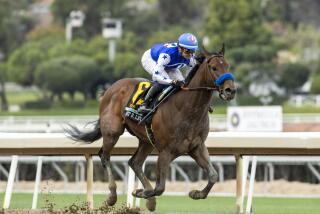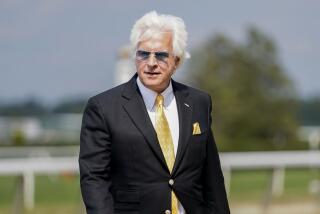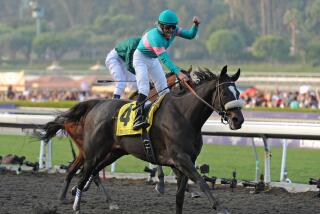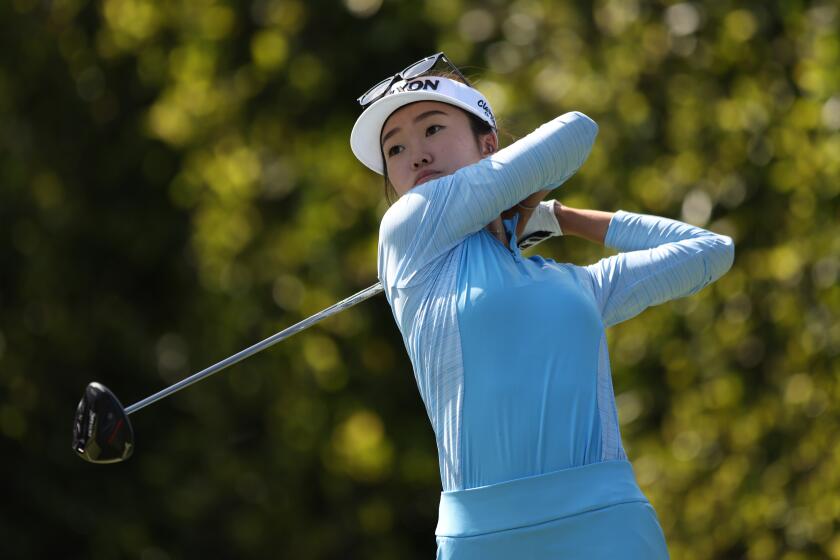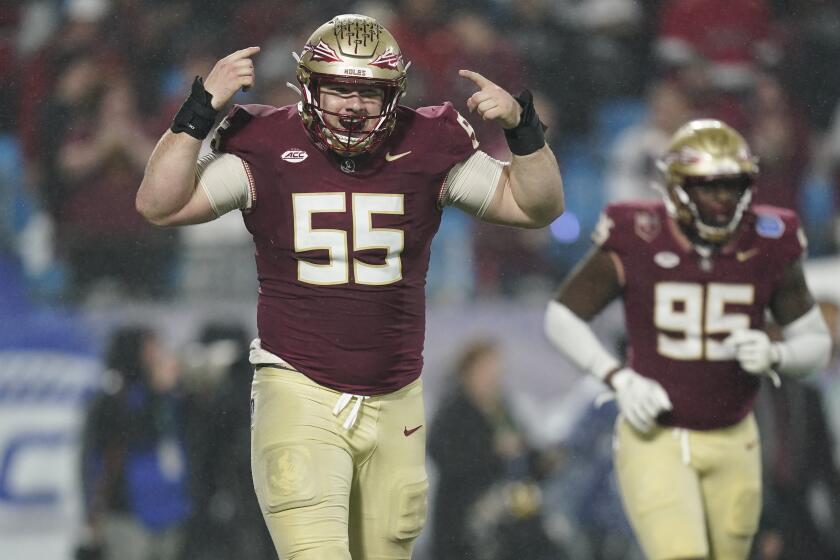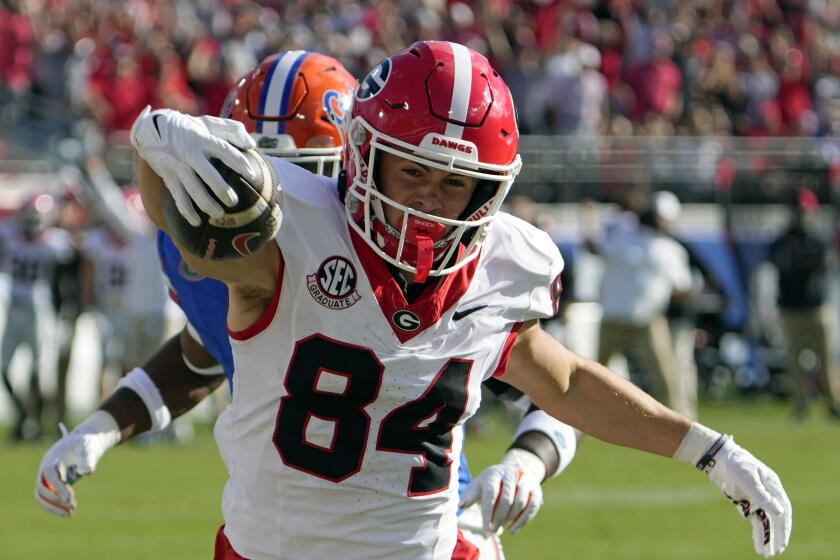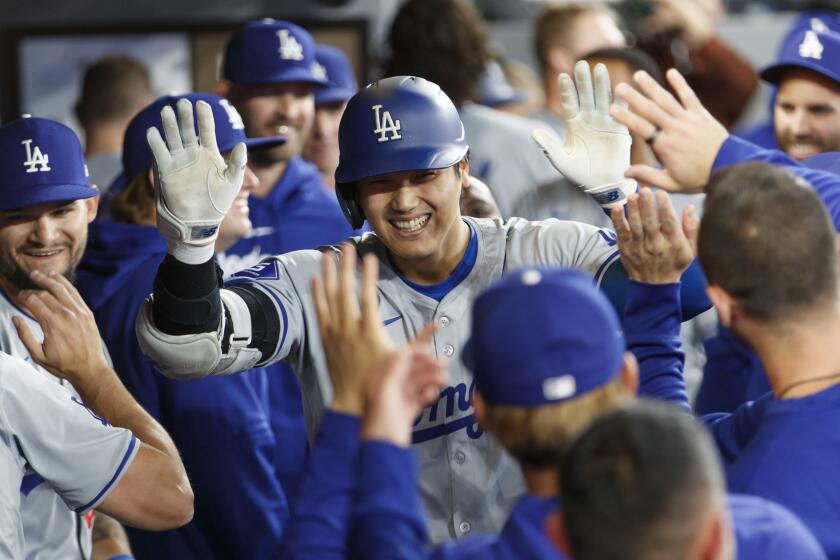A look at horse racing, from the jockey’s point of view
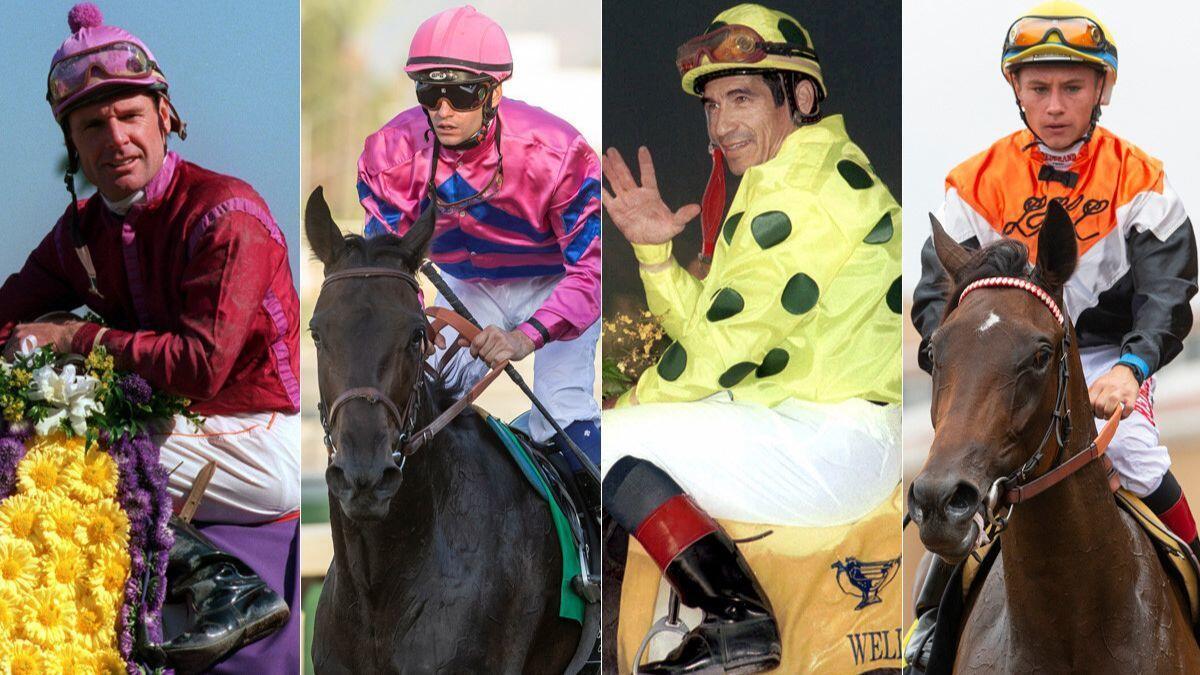
The perception of the past and the promise of the future can sometimes be in conflict. To find out how that applies to horse racing, the Los Angeles Times gathered two Hall of Fame riders and two of the sport’s best young jockeys to talk about how riding has changed and the issues jockeys face today.
The panel was made up of Eddie Delahoussaye, 67, who won more than 6,000 races, including five Triple Crown races and seven Breeders’ Cup races; Laffit Pincay Jr., 71, who won more than 9,500 races, four Triple Crown races and seven Breeders’ Cup races; Flavien Prat, 26, who has won almost 600 times and two Breeders’ Cup races; and Drayden Van Dyke, 24, who has won almost 500 races.
The answers to the questions have been edited for clarity and brevity.
What is different about how jockeys ride today?
Pincay: Right now is tough, because there are not as many horses. Owners are getting involved, and when owners get involved it makes it tougher on jockeys. And it makes it tougher on the trainer. A trainer may want to use a jockey and the owner doesn’t want to. And he has to do what the owner says. It’s tough for young guys coming up. They may be working a horse [in the morning] and the trainer wants to use him, but the owner wants to use someone who is winning races.
In the old times, there were more jockeys, a lot of Hall of Famers. Now there are good jockeys but the competition is tough. It’s really hard now because of short fields.
Prat: Even if you are a good rider and you have a lot of business, [owners] are involved and they want to change everything. It’s a lot of businessmen, and they’ve been successful, but I think in this business it’s the trainer who should be handling all the stuff and has the knowledge of everything.
Pincay: I’ll give you an example, back then if you had a trainer like Charlie Whittingham, he had probably the best horses all the time. But who did he use? He used [Bill] Shoemaker, he used me, but he used Larry Gilligan and Bill Harmatz, jockeys who were not up there. He gave those guys chances all the time and they would win with the horses. Now, a trainer like Bob Baffert, he wants to use a guy that is doing good, someone he likes. He very rarely gives a chance to somebody else.
Did you guys every feel you could lose a mount with one bad ride?
(Lots of laughs.)
Van Dyke: You can lose a mount even after a good ride.
Prat: [Van Dyke] won a bunch of races, even with Justify, and then you don’t get to ride Justify.
What’s the difference between the guys at the top and those that don’t get the mounts?
Delahoussaye: When you can learn the feel of a horse and know when to push the button and know what he needs, that’s a top rider. And know not to panic because you have the confidence in that horse. I’ve watched [Prat and Van Dyke] ride and they give horses chances and they feel their horses and they know when to push the button, where there are other riders who never learn that feel.
Do you ever ignore trainer instructions and go your own way?
Delahoussaye: It’s what makes you a top rider. If the trainer tells you what to do, and you know the horse and how he needs to be ridden, you’re just going to block that out and do what you need to do.
Pincay: It’s nice to have a trainer that has confidence in you. That he knows when you don’t follow his instructions that he understands that you’re going to try and win. If they tell you to be fifth or fourth or third [after the break] but the horse bounds out of there, you just use your own judgment.
Prat: I’d rather get beat because I made the move that I want to do than get beat because I listened to him.
How much time do you study before a race?
Prat: I’m watching videos, but I Iook at the [past performances] and recent works if I haven’t worked the horse. I don’t want to get too focused on what is supposed to happen than how to ride the horse.
Van Dyke: With a new horse, I might go and see the race and pick up what the jock might have done wrong or something I could have done different to win the race. Most of the time, I’ve been on the horse because I ride them in the morning so I know them.
Would you guys have been better riders if you had videos and all this other data?
Pincay: No, I’ll tell you what. I would never watch video.
Delahoussaye: Mainly, I was like Laffit and I studied my form when I came in the jocks room. If you worked them in the morning you pretty much knew what was going on and knew your competition.
Laffit, when you were at the top of your game, you made it known you didn’t want to work too many horses, you wanted to save your energy for the races. Do you think these guys have to work too many horses?
Pincay: Nowadays they have to.
Delahoussaye: I would think they have to because they are so short of fields. You want to be connected with your trainers; you don’t want to lose that.
Do you have a mental connection with the horse?
Van Dyke: You really connect with your hands. I know a horse and how they think and stuff. When you figure that out, it’s really big.
Did you ever make a change that made a big difference in your riding?
Pincay: In 1979, it was the best year that I rode. I became a vegetarian that year. The only thing I was eating was a little bit of nuts with grains and dry fruit. That was my dinner and I was meditating. When I would go to the track, first I would go into the box, reduce my weight and then I would go into the dormitory and meditate for half-an-hour. When I came out of there, I was relaxed, I was in a trance.
I would be riding a race and I felt when the horse was going to move. I just sat there and then all of a sudden the horse would start accelerating and then I would go with him. But the problem was after the races, all I wanted to do was go to sleep. Now, I understand it was an iron deficiency, that’s why I was so sleepy. When it came the next year, I didn’t want to do that anymore. I was never able to ride that way again.
What do you think about when you are riding in a race?
Pincay: Winning. You just try and do the right thing and try not to get in trouble. Sometimes you have to take chances. If you don’t take chances, you are not going to win as many races.
Van Dyke: I try and do all the small things right. When I come out of the first turn and if I feel the horse still on the left lead I’ll throw him over to the right lead. I’m also looking at who I’m following. Certain jockeys I like to follow more than others. He’s [Prat] one I like to follow, especially on the grass. I’m also looking at the other horse’s actions too. If I see one that’s starting to back up a little, I don’t want to be behind him. I start to weave my way in and out.
Who is the best horse you ever rode?
Delahoussaye: The best and most royally bred, and he turned out to be a great stallion, was A.P. Indy.
Pincay: I would say Affirmed. He was consistent. He won a lot of ways. Horse of the year. Triple Crown winner.
Van Dyke: The most talented so far has to be Justify. He was amazing, and I got to work him after I was taken off him. It was amazing how easy he did things and how smart he was from the word go.
Prat: I think the best horse was Taris. I only rode her once and she was retired after that. She won the Humana Distaff. I had breezed her in the morning and she had such great balance.
Drayden, how disappointing was it to be taken off Justify for Hall of Famer Mike Smith, one of your best friends?
Van Dyke: I took it hard for one day but I got over it in one day.
Did you ever get taken off a horse you shouldn’t?
(More laughter)
Pincay: One time I got taken off John Henry because the owner [Sam Rubin] said I didn’t say hello to him. I’m not saying he’s lying, but sometimes you come from a race and you see somebody and your mind is miles away. I didn’t remember seeing him, but he said I saw him and didn’t say hello to him so he took me off the horse.
How would you make racing better?
Pincay: They have four days of racing, and I think one or two days they should let everyone come for free. Whatever people spend at the entrance they could be betting on the horses.
Delahoussaye: We have a lot of horses but even then we are getting short [fields]. This year there were only 19,000 babies hitting the ground. We used to have a crop of 38,000. We now have too many race tracks. I think you’re going to see a lot of those tracks close. I think we need fewer tracks, more publicity for the horses, we’re already getting the off-track betting, we’re getting the online betting. That’s helping.
They need to limit the stalls like the old days where a racing secretary doesn’t have super barns, having all the horses in their barns and they have five horses or 10 horses to run in one race and they only put one or two. If they were with other trainers, they could be running their horses. That’s hurting us, and the racing secretary is getting mad at every little outfit that can’t fill a race because they don’t have enough horses. I wish they would allow [each trainer] 50 horses and spread the rest out.
Who’s the best jockey ever?
Delahoussaye: Me and Laffit will say ourselves. But no, it was Shoemaker.
Pincay: It’s got to be Shoemaker.
Prat: It’s tough to say, everybody saw it differently. It’s like saying who’s the best horse. I wish I could have seen Cash Asmussen ride.
Van Dyke: Pat Day. Our style is very similar. Mike [Smith] says I remind him of Pat Day.
Delahoussaye: My second choice is Laffit. But I never told him that when I was riding. I had to beat him. I didn’t tell Shoe that either.
Click here (or type in this url: lat.ms/2wVt90g) to sign up for our free horse racing newsletter.
More to Read
Get our high school sports newsletter
Prep Rally is devoted to the SoCal high school sports experience, bringing you scores, stories and a behind-the-scenes look at what makes prep sports so popular.
You may occasionally receive promotional content from the Los Angeles Times.
